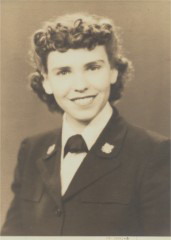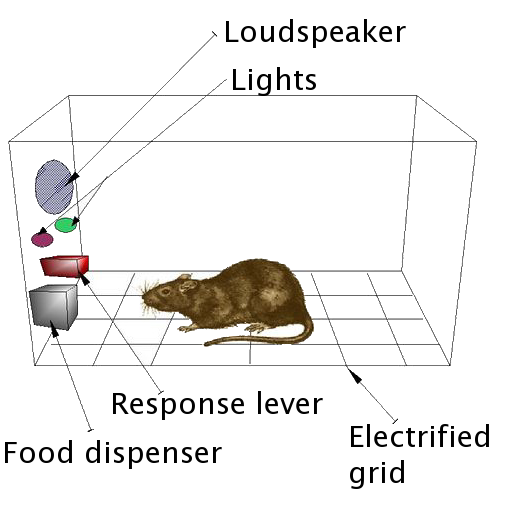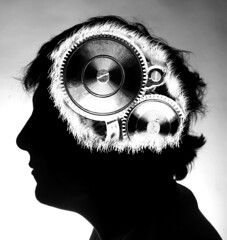When we have been prevented from learning how to say no, our bodies may end up saying it for us.
Why
do some people get sick, become disabled, or even die from diseases
like cancer, ALS, Alzheimer's, while others with the same exposure to
environmental toxins never get sick? Why do some people get cancer that
goes into remission, and others, like my mother, die from it?
Studies
at the US National Cancer Institute found that natural killer (NK)
cells, an important class of immune cells we have already met, are more
active in breast cancer patients who were able to express anger, to
adopt a fighting stance and who have more social support.... The
researchers found that emotional factors and social involvement were
more important to survival than the degree of disease itself.
I
am still working to absorb and learn the many lessons this book
presents, both for myself as a human being, as a daughter trying to come
to terms with the death of my mother and of others I've loved, and
(probably least importantly) as a writer trying to create believable
characters.
We often treat our bodies as if they are
separate from our hearts, minds, and emotions, kind of like a biological
automobile. As if a health "breakdown" is a purely mechanical problem
that can be fixed by diet, exercise, the right pills, and adjusting air
pressure in the tires.
Reality: Emotions affect the body.
Watch
a scary movie. Even though you are in no physical danger, doesn't your
heart pound, your breath get tight in your chest? Read a sexy novel. If
it's good enough, you'll feel rigidity in certain body parts, wetness in
others. Receive a gift. From your partner, tickets for a dream vacation
may make you feel happy and excited; from your cat, a squirming rat may
make you feel queasy.
When the Body Says NO examines studies and examples of
psychoneuroimmunoendocrinology:
the way the body's nervous system, immune defenses and endocrine or
hormonal apparatus all work together. (Called the PNI system in short,
because
psychoneuroimmunoendocrinology is a mouthful.) It looks
at patients for whom Dr. Maté has consulted, as well as more famous case
studies, from Stephen Hawking (ALS) to Betty Ford (substance abuse,
breast cancer) to Gilda Radner (ovarian cancer, bulimia) to Ronald
Reagan (Alzheimer's).
Stress - More Than A Feelin'
Stress
consists of the internal alterations – physical or not – that occur when
the organism perceives a threat to its existence or well-being.
Stress - if a bear appears - can save your life.
Stress triggers the PNI system to send, "Let's get the hell out of
Dodge!" or "Stand and fight!" messages throughout the body.
Just
like circulation to the extremities will shut down in freezing
temperatures, because you can survive without a toe, or two, stress
(temporarily) shuts down the systems that kill cancer cells or other
long-term threats, process food products in the digestive tract, and
more. Like Scotty on Star Trek diverting all energies to the warp drive,
your body gives "all she's got, Captain" where
it thinks it will be needed, on a totally automatic level.
The
stress response is nonspecific. It may be triggered in reaction to any
attack – physical, biological, chemical or psychological – or in
response to any perception of attacker threat, conscious or
unconscious. The essence of threat is a destabilization of the body’s
homeostasis, the relatively narrow range of physiological conditions
within which the organism can survive and function. To facilitate fight
or escape, what needs to be diverted from the internal organs and
muscles, and the heart needs to pump faster.
Whenever stress occurs, even when we don't consciously
feel stressed, changes occur in our bodies.
Stress, as we will define it, it is not a matter of subjective feeling.
It is a measurable set of objective physiological events in the body,
involving the brain, the hormonal apparatus, the immune system and many
other organs. Both animals and people can experience stress with no
awareness of its presence.
That whole "with no awareness of its presence" aspect cannot be overemphasized.
The physiological effect on the body is the same whether we are aware
or unaware of stress. Especially for children who experience recurring
stress, the state of being stressed can become the New Normal.
Eventually,
having unmet needs or having to meet the needs of others is no longer
experienced as stressful. It feels normal. One is disarmed.
Recurring
or chronic stress (such as being an abused child, or watching a parent
be habitually abused by his/her partner, while being unable to
intervene), being neglected, leaves permanent marks, both on the immune
system and other bodily defenses (think of the story of the Boy Who
Cried Wolf), and in the relationship patterns we form later in life. We
are more likely to choose life partners whose behaviors mirror those we
knew growing up, whether those behaviors were healthy or unhealthy.
For those habituated to high levels of internal stress since
early childhood, it is the absence of stress that creates unease, evoking
boredom and a sense of meaninglessness. People may become addicted to
their own stress hormones, adrenaline and cortisol... To such persons stress
feels desirable, while the absence of it feels like something to be
avoided.
Chronic stress actually changes the way our brains function.
In
people who’ve experienced chronic stress, the prefrontal cortex and
related structures remain in a state of hypervigilance, on the lookout
for danger. Pre-frontal activation is not a conscious decision by the
individual; rather, it is the result of the automatic triggering of
nerves pathways program long ago.
In situations
where the body's balance is continually disrupted in response to a
perceived threat, the balance of the body is thrown out of whack, And
whenever that happens, cancer, or other long-term diseases, have the
perfect opening to take over.
Natural Born Killers - The Body's Best Friend
In a healthy body, there are NK cells, which serve as the body's Angels of Death.
Just
like in any factory, the body frequently produces cells which which
would be labeled abnormal or flawed, but inside the body, there is no TJ
Maxx or Nordstrom's Rack to send "irregular" material.
NK
cells track down abnormal cells, such as cancer cells and destroys
them, so that the majority of cells in the body are healthy and
functional.
There
have been many cases where the NK cells have caused full remission of
cancer, most significantly in cases of melanoma (skin cancer). Why
this cancer and not others?
Why in some cases and not others?
It can't be wholly attributed to DNA, environmental toxins (or lack
thereof), but to family systems and work environment systems.
When the Body Says No
refers to several studies in which tiny clumps of cancer are often
found in an elderly person's body after death from other causes. Perhaps
as we age we all have tiny clusters of cancer growing in our bodies,
which our NK cells routinely eliminate before they are large enough to
be detected.
In short, for cancer
causation it is not enough that DNA damage occur: also necessary is
failure of DNA repair and/or an impairment of regulated cell death.
Stress and the repression of emotion can negatively affect both of those
processes.
The Blame Game
On thing that has made me uneasy in reading similar books, such as Louise Hay's
You Can Heal Your Life,
is my perception (or misperception, perhaps) that the victim was being
blamed for his/her own illness. Dr. Maté debunks that idea:
Blaming the sufferer – apart from being morally obtuse – is completely unfounded from a scientific point of view.
He doesn't even jump on the easy way many shrinks do -
it's all the mothers' fault. While be acknowledges that hurts/patterns learned during childhood or generationally may have a lasting effect:
Emotionally
draining family relationships have been identified as risk factors in
virtually every category of major illness, degenerative neurological
conditions to cancer and autoimmune disease. The purpose is not to blame
parents or previous generations or spouses but to enable us to discard
beliefs that prove dangerous to our health.
The point of doing so is that we can
recognize and
interrupt those patterns, rather than repeat them.
We
are not doomed, the helpless victims of our genes and environmental
toxins and terrible childhoods, destined to get sick and not be able to
do anything about it. I think that's a
good message.
Differentiation: Dance Space of Champions
Remember the wonderful rehearsal scene in Dirty Dancing where Johnny (Patrick Swayze) explains to Baby (Jennifer Grey) "This is
my dance space, that is
your dance space"? Everyone needs good physical and emotional boundaries to be healthy.
When
we are born, we have no boundaries. We assume the whole world,
including Mother, revolves around US. We don't understand or realize
that Mother is a separate being, that she doesn't feel our hunger, wet
diaper, tummy cramps at the same instance we feel them.
A fundamental concept in family systems theory is differentiation,
defined as “the ability to be in emotional contact with others yet
still autonomous in one's emotional functioning.” The poorly
differentiated person “lacks an emotional boundary between himself and
others and lacks a ‘boundary’ that prevents his thinking process from
being overwhelmed by his emotional feeling process. He automatically
absorbs anxiety from others and generates considerable anxiety within
himself.”
Later, we realize that when we are scared,
hurt, cold, etc., Mother doesn't necessarily share our feelings. Just
as we don't share her
feelings. But in some cases, we will be emotionally enmeshed with Mother (or Father) and take on the role of protecting
her:
The
child of an unhappy mother will try to take care of her by suppressing
his distress so as not to burden her further. His role is to be
self-sufficient and not “needy”...
What it all boils down to is a lack of clear boundaries.
Boundaries are that thing that says:
This is my dance space, this is your dance space.
When
boundaries get confused within the body itself, when the body cannot
recognize, "This is ME; this is Other," then we get diseases where the
body's immune system doesn't defend against intruders, but is so
confused it attacks its own cells, as is the case in MS, ALS,
schleroderma, and other auto-immune diseases.
Anger - The Emotion We Love to Hate
Especially as
women, we are socially conditioned to think of anger as a "negative"
emotion. If we are "nice girls/women," we won't
get angry with people.
“I
never get angry,” a Woody Allen character says in one of his movies, “I
grow a tumor instead.” Throughout this book we've seen the truth of
that droll remark in numerous studies of cancer patients.
Here's the problem: we can't control
being angry.
Anger, according to this and other research, is the natural reaction of
an organism to perceived loss, or threat of loss. Picture an angry wild
animal warning another off his/her kill (see the bear, above). Usually
animals do
not fight to the death over a meal or a mate, but the
creature with the biggest display of anger wins. "I won't let you take
this from me" is the message.
Being angry is not about being a Mean Girl. It is
not about going into a rage.
If
you ask in physical, physiological terms what they are experiencing in
their body when they feel rage, for the most part, people describe
anxiety in one form or another.
Allowing oneself to feel angry in the appropriate circumstances can be an empowering experience.
The
repression of anger and the unregulated acting out of it are both
examples of the abnormal release of emotions that is at the root of
disease.... The real experience of anger “is physiologic experience
without acting out. The experience is one of a surge of power going
through the system along with the mobilization to attack. There is, simultaneously the complete disappearance of all anxiety.”
I had just finished reading
When the Body Says No,
when in October 2012, my super-kind, beautiful friend Sidney Patrick
died of a heart attack, in large part due to cirrhosis of the liver.
She was 43.
She
epitomized the disease-sufferer profiled within this book; swallowing
feelings with food, drugs, or alcohol, always being kind and supportive
of everyone but herself.
The
inability to process and express feelings effectively, and the tendency
to serve the needs of others before even considering one’s own, are
common patterns in people who develop chronic illness. These coping
styles represent a blurring of boundaries, the confusion of self and
non-self on the psychological level.
I remember telling Sid's mother, shortly after Sid passed, "I am
so angry." I was hurt, I was grieving, but over all, I felt
so angry at the waste, at being deprived of my friend, who I loved and needed.
I remember so many conversations with Sid; whenever the subject would turn to
her,
she would divert the conversation as swiftly as possible to other
people. She was wholly uncomfortable addressing her own needs, hurts,
and dreams. Her long-term boyfriend was mentally ill, often called her
names and verbally abused her, even when she was in the hospital, yet
she did not want to be cruel enough to "abandon" him.
She did, belatedly, realize that something had to change. After being released from the hospital in August 2012, she told me,
"If I stay with him, it's going to kill me."
That
is the exact same feeling I had, after being diagnosed in 2009 with
"unusual" breast lumps and cysts, which spurred me to break with my
then-boyfriend in 2010.
Sadly, Sid was right. She left him in September 2012. If only she had left a month or two earlier...
Betty Ford, Betty Koschin Diehl, and Breast Cancer
Betty Ford was, of course, the first Lady of the United States of America, wife of a fairly ambitious politician. My mother,
Betty Koschin Diehl
was, comparatively, a nobody; eldest daughter in a family of four
children. She signed up to serve in the military (Coast Guard) during
WWII, as did many women. Besides the name, both women were diagnosed
with breast cancer in the same approximate era, and received similar
medical treatment.
Research has
suggested for decades that women are more prone to develop breast cancer
if their childhoods were characterized by emotional disconnection from
their parents or other disturbances in their upbringing; if they tend to
repress emotions, particularly anger; if they lack nurturing social
relationships in adulthood; and if they are the altruistic, compulsively
caregiving types.
Betty Ford's mother was a
perfectionist; Betty never felt as though she measured up to her
mother's standards. Betty Koschin's mother: also harsh and demanding.
The
emotional repression, the harsh self judgment and the perfectionism
Betty Ford acquired as a child, through no fault of her own, are more
than a “good recipe for alcoholism.” They are also a “good recipe” for
cancer of the breast.
Both Betty's had husbands
whose professional and emotional needs came first. My mother suppressed
anger, definitely, though her husband was a "rager." Altruistic,
compulsively caregiving - yep. Additionally, in her last year of life,
my father decided to transplant our family to another state, away from
my mother's supportive network of family and friends.
My mother's breast cancer, which had been in remission, returned, and killed her. She was 49.
Emotional Competence - Who Dat?
The goal of
When the Body Says No, and
life, isn't to whine about what a raw deal we got (think about that scene in
Slumdog Millionaire where the way out is through the outhouse), but figure out what tools we do have, and work toward
becoming emotionally competent. Regardless of how we were raised,
we can do this.
Emotional competence requires
- the capacity to feel our emotions, so that we are aware when we are experiencing stress;
- the ability to express our emotions effectively and thereby to
assert our needs and to maintain the integrity of our emotional
boundaries;
- the facility to distinguish between psychological reactions that are
pertinent to the present situation and those that represent residue
from the past. What we want and demand from the world needs to conform
to our present needs, not to unconscious, unsatisfied needs from
childhood. If the situations between past and present blur, we will
perceive loss or the threat of loss where none exists; and
- the awareness of those genuine needs that do require satisfaction,
rather than the repression for the sake of gaining the acceptance or
approval of others.
We may have had little control about
what happened to us as children, but we can take control of how we
handle our emotions now. By taking control, that doesn't mean pretending
life is all kittens and rainbows, or suppressing "negative" emotions
like anger or fear, but learning to recognize what we feel, when we feel
it.
When the Body Says No closes with seven specific "A" areas of healing:Acceptance, Awareness, Anger:
Since
anger does not exist in a vacuum, if I feel anger it must be in
response to some perception on my part. It may be a response to loss or
the threat of it in a personal relationship, where it may signal a real
or threatened invasion of my boundaries. I am greatly empowered without
harming anyone if I permit myself to experience the anger and to
contemplate what may have triggered it.
Autonomy, Attachment, Assertion, and Affirmation.
This post is
reblogged with permission from Writing in Flow.
Have you read this book? What did you think?
How do you deal with anger?
Do you suppress any emotions (that you know of)?





















